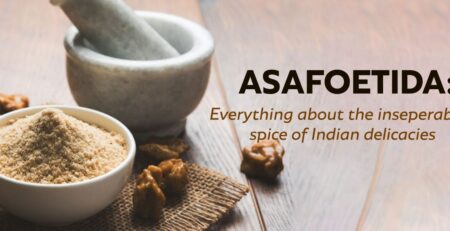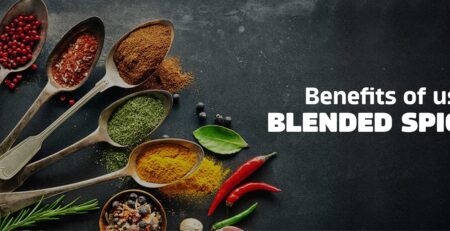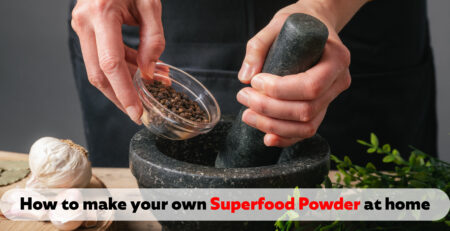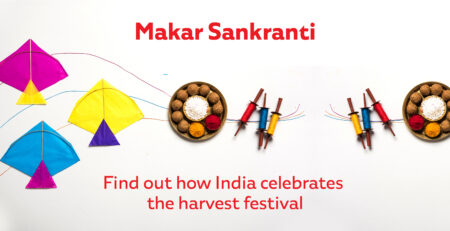Essential Spice Tips and Tricks for Home Cooks
Spices have been an integral part of Indian cuisine forever. Spices for cooking add depth, aroma, and flavour to our dishes and bring a touch of cultural diversity to our plates. Badshah Masala understands the importance of spices in cooking, and that’s why we’re here to share some essential tips for cooking with spices for home cooks.
In this blog, we’ll explore the essential Indian spices, tips for cooking with spices, & how to store spices long term.
Why Do We Use Spices in Our Food?
Before delving into the tips and tricks, let’s address the fundamental question: why do we use spices in our food? Spices are more than just flavour enhancers; they are the soul of many cuisines, especially Indian cuisine.
Here are some reasons why spices play a vital role in cooking:
Flavour Enhancement: Spices elevate the taste of dishes by adding complex, layered flavours. They can transform a bland meal into a culinary masterpiece.
Aromatics: Spices contribute aromatic compounds that entice our senses, making the dining experience more enjoyable.
Cultural Identity: Spices are deeply rooted in the cultural heritage of various regions. They define the uniqueness of dishes and connect us to our culinary traditions.
Medicinal Properties: Many spices have medicinal properties and health benefits. For example, turmeric is known for its anti-inflammatory properties, while ginger aids digestion.
Now that we understand why spices are essential, let’s move on to knowing some essential Indian spices.
Essential Indian Spices
Indian cuisine is renowned for its bold and vibrant flavours, thanks in large part to a unique blend of essential spices. Here are some of the must-have Indian spices you should keep in your kitchen:
- Turmeric: Known for its vibrant colour and earthy flavour, turmeric is a staple in Indian cooking. It’s also prized for ts medicinal properties.
- Cumin: Cumin seeds or ground cumin add a warm, nutty flavour to dishes. They are often used in tempering.
- Coriander: Coriander seeds and ground coriander provide a citrusy, slightly sweet note to curries and spice blends.
- Cardamom: This fragrant spice comes in two varieties: green and black. Both add a delightful aroma and flavour to desserts, chai, and savoury dishes.
- Cinnamon: Cinnamon sticks or ground cinnamon are used in both sweet and savoury dishes, imparting a warm and comforting flavour.
These are just some of the essential Indian spices, apart from which there are a plethora of spices that are used in Indian cuisine and cooking on an everyday basis. For eg: Whole red chilli, red chilli powder, mustard seeds, fenugreek seeds, carom seeds etc.
Hopping on to know the practical tips for using them effectively in your cooking.
Tips for Cooking with Spices
- Balancing Act: Spices can vary in intensity, so it’s crucial to balance their usage. Start with a small amount and gradually add more if needed. Remember, you can always add more spice, but it’s challenging to reduce it once it’s too strong.
- Freshness Matters: The freshness of your spices greatly affects the flavour of your dishes. Always use fresh spices for the best results. Consider grinding whole spices just before use to preserve their aroma and taste.
- Layering Flavours: To create depth in your dishes, consider layering spices. Start with whole spices like cumin seeds or mustard seeds in hot oil to release their flavours before adding powdered spices.
- Mind the Heat: If you’re concerned about the spiciness of a dish, remember that the heat in spices often resides in the seeds and membranes. To reduce spiciness, remove these parts from chilli peppers or use milder varieties.
- Mix and Match: Experiment with spice blends to create unique flavours. Combining spices like cumin, coriander, and turmeric is a classic way to add depth to Indian dishes.
- Toasting for Intensity: Toasting spices, like whole cumin or mustard seeds, in a dry pan for a minute or two can intensify their flavours. Just be careful not to burn them.
- Fresh Herbs and Spices: Fresh herbs and spices can take your dishes to the next level. Consider adding chopped fresh cilantro or mint leaves to your dishes right before serving for a burst of freshness.
Reducing Spiciness in Food and Chutney
Sometimes, despite our best efforts, a dish turns out spicier than intended. Here’s how you can salvage it:
- Dairy to the Rescue: Dairy products like yoghurt, cream, or coconut milk can help counteract spiciness. Add a spoonful of yoghurt to your spicy curry or serve a cooling raita on the side.
- Citrus Zest: The zest of citrus fruits like lemon or lime can help balance spiciness. Grate some zest and add it to your dish for a refreshing kick.
- Sweetness: Sweetness can temper spiciness. Try adding a bit of sugar or honey to your dish to mellow out the heat.
- Starchy Saviours: Adding starchy ingredients like rice, pasta, or bread to a spicy dish can dilute the spiciness. Serve your spicy curry over a bed of rice to lessen the heat.
How to Store Spices Long Term
Properly storing your spices is essential to maintain their flavour and potency. Here are some tips on how to store spices:
- Airtight Containers: Store your spices in airtight containers to prevent moisture and air from degrading their quality. Glass jars with tight-fitting lids work well.
- Cool and Dark: Keep your spice containers in a cool, dark place away from direct sunlight. Heat and light can cause spices to lose their flavour.
- Labelling: Label your spice containers with the date of purchase to keep track of freshness. Spices are best used within one to two years for optimal flavour.
- Freezer Storage: For long-term storage, consider freezing spices. This can help extend their shelf life significantly.
Conclusion
Spices are the secret ingredients that can elevate your home-cooked meals to restaurant-quality dishes. Understanding their significance, using them wisely, and storing them properly are key to making the most of these flavour-packed gems.
Badshah Masala encourages you to experiment with spices, explore new flavours, and embrace the rich culinary traditions they bring to your kitchen.
With the right knowledge and a dash of creativity, you can become a master of spices and transform your everyday cooking into a delightful culinary journey.











